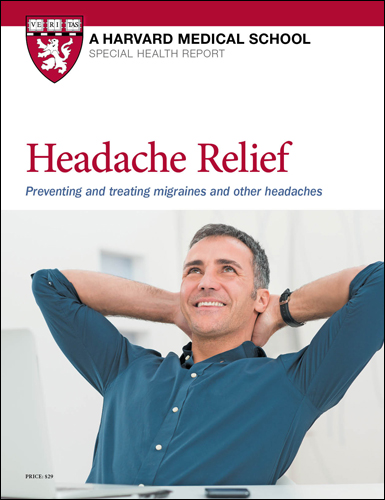Harvard Health Blog
How to talk to your doctor about medication

Pharmacology has changed the practice of medicine. Scientists are continually working on new and better drugs to manage medical conditions, from high blood pressure to autoimmune diseases to cancer. The mechanism of a drug — how it actually works on the condition it is mean to treat — is one important factor, but drug delivery, meaning how the medication arrives at the target it is meant to affect, is also key.
As a patient, it's your right to understand everything about a medication prescribed for you. That doesn't mean you have to become a scientist or pass an exam about pharmacology. But you can and should ask your doctor to explain to you why she has selected this medication for you, how it works, and what side effects you should expect. An article in Pharmacy World and Science explores what medications mean to patients and why it's important to think about these concepts. Do I need this medicine? How will it impact my body? What control do I have over the effects of the drug?
Find out why this particular medication
No matter what the health condition is, there is always more than one choice of medication to treat it. Ask why the one your doctor recommends is the best choice for you. You want to know what the medicine is expected to do and how that will be monitored. Will you be expected to keep a log of your pain, symptoms, blood pressure, or blood sugars? Is this a medicine your doctor has used before and is familiar with? It's a red flag if he says, "Well, I haven't tried it before with a patient, but it seems like the right choice."
Sometimes a physician will try a drug that is new to the market, but you need to know exactly what makes this medicine special for your condition. Be wary of medicines that are "brand name only." That means they are newer to medical practice, will likely be more expensive, and that there is less experience using them. Sometimes, a newer brand name drug is a great choice, but if your doctor just heard about it and isn't yet familiar with potential side effects and clinical response, you need to know that.
Be sure you know how to take the medication
Morning or evening? Empty stomach or after a meal? What if you miss a dose? Can you have a glass of wine while taking this medicine? Is it okay to drink grapefruit juice (which interacts with many medicines)? Will you need to "titrate up" (meaning to increase slowly until you get to the right dose)?
Your doctor should carefully review medication side effects
All drugs have potential side effects, even acetaminophen (Tylenol). Fatigue, weight gain, and headache are common, but there are lots of others. Some drugs can make your urine turn a different color — scary unless you know to expect it. Your GI system may move more quickly, resulting in diarrhea. Hair loss is an unpleasant drug side effect that can sometimes be prevented by taking supplements with the medicine. Tremor is another side effect that can limit how much of a medicine you're able to tolerate.
Whatever you experience is real, so make sure you keep a list and let your doctor know. Anyone can be allergic to a medicine (and sometimes it's just a simple rash that fades when you stop the drug), but a more serious and potentially life-threatening side effect is anaphylaxis. That means that you can actually stop breathing as your body goes into crisis mode. Don't ignore any new symptoms when you start a drug.
Keep track of your experience and ask questions
It's often useful to keep a list of questions in a notebook you take to medical appointments, or on your phone. Phone apps are great ways to track responses and side effects, so be sure to ask about options. Make sure you have all the answers about your medication, including how long you're expected to try it before an adjustment or change.
Medicine can be life-altering. Taking medication prescribed for you can help you feel better or prevent health problems down the road (or both). But if a drug isn't working for you or you are concerned about new symptoms or side effects, speak up. Your doctor needs to know in order to change the drug or dose, or consider other options.
New choices offer patients incredible options to improve their health. Your job is to understand your medicine and to tell your doctor if you can't tolerate it or don't want to take it. Medication adherence starts with you, but treatment is a partnership, so ask the questions you need to understand your treatment.
Source
Understanding the meaning of medications for patients: The medication experience, Pharmacy World and Science, January 2008.
About the Author

Carolyn A. Bernstein, MD, FAHS, Contributor
Disclaimer:
As a service to our readers, Harvard Health Publishing provides access to our library of archived content. Please note the date of last review or update on all articles.
No content on this site, regardless of date, should ever be used as a substitute for direct medical advice from your doctor or other qualified clinician.
















